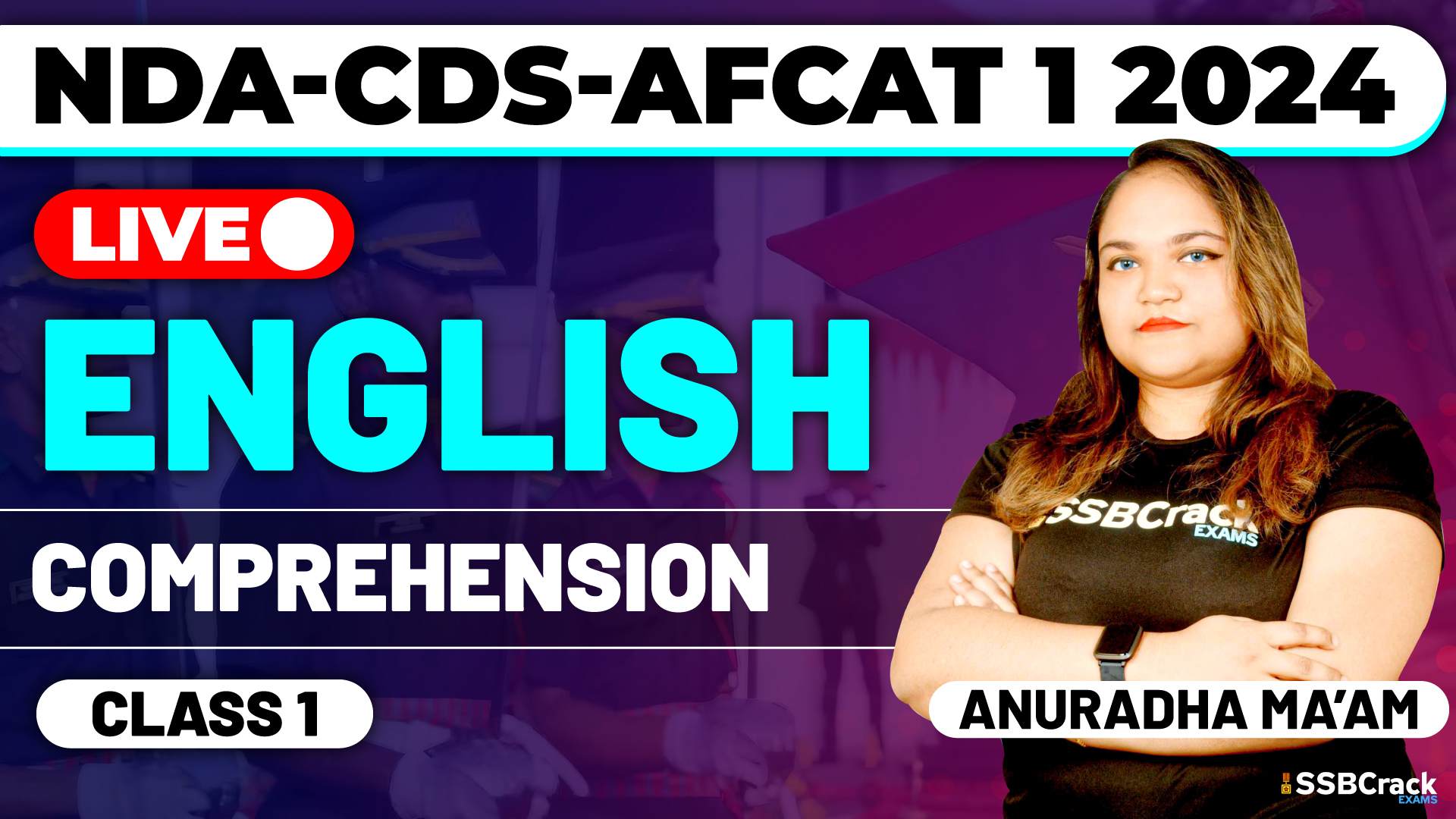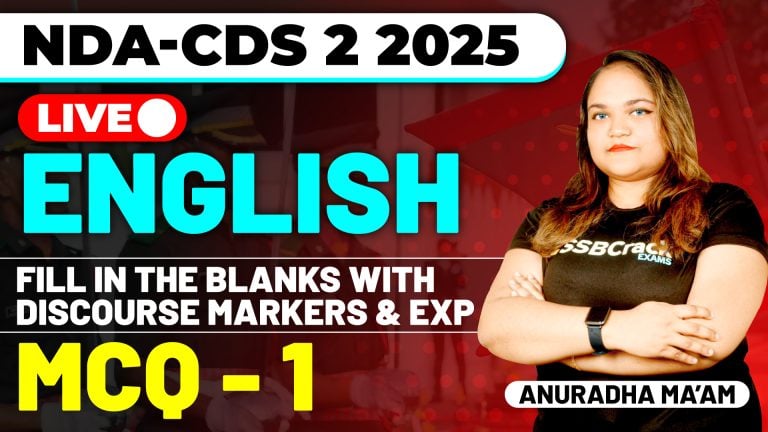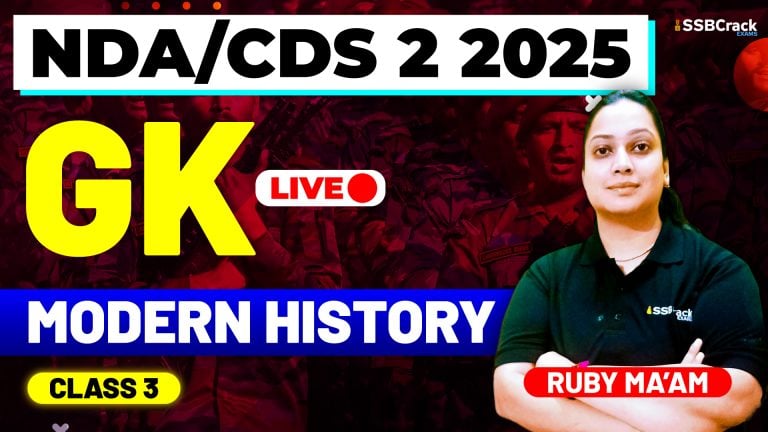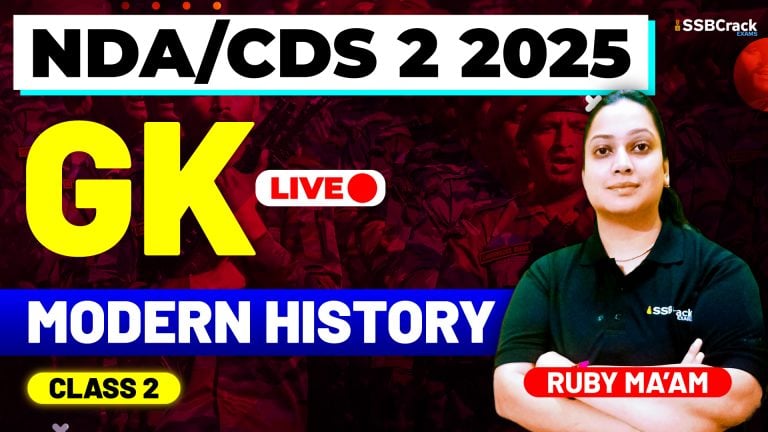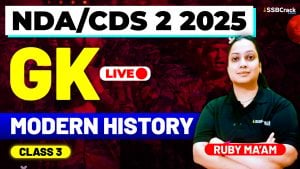In the dynamic terrain of National Defence Academy (NDA), Combined Defence Services (CDS), and Air Force Common Admission Test (AFCAT) examinations, linguistic prowess is paramount. Among the multifaceted challenges posed by the English section, the topic of “Comprehension” stands tall as an indispensable evaluation. This article explores the pivotal significance of excelling in Comprehension, delving into insights from Comprehension Live Class 1. It also provides strategic approaches, guiding aspirants on how to prepare for this critical aspect and enhance their reading and comprehensive skills for defense competitive exams.
Directions: Read the passages carefully and answer the questions given below them.
Crude mineral oil comes out of the earth as a thick brown or black liquid with a strong smell. It is a complex mixture of many different substances, each with its own individual qualities. Most of them are combinations of hydrogen and carbon in varying proportions. Such hydrocarbons are also found in other forms such as bitumen, asphalt and natural gas. Mineral oil originates from the carcasses of tiny animals and from plants that live in the sea. Over millions of years, these dead creatures form large deposits under sea-bed and ocean currents cover them with a blanket of sand and silt. As this material hardens, it becomes sedimentary rock and effectively shuts out the oxygen, so preventing the complete decomposition of the marine deposits underneath. The layers of sedimentary rock become thicker and heavier. Their pressure produces heat, which transforms the tiny carcasses into crude oil in a process that is still going on today.
Q1) Marine deposits under the sea do not get decomposed because they :
(a) become rock and prevent oxygen from entering them
(b) are covered by the sand and slit brought by the current
(c) contain a mixture of hydrogen and carbon
(d) are constantly washed by the ocean current
Ans. (a)
Q2) Sedimentary rock leads to the formation of oil deposits because :
(a) it becomes hard and forms into rocks which produce oil
(b) its pressure produces heat and turns the deposits of animal carcasses and plants into oil
(c) it turns heavy and shuts out the oxygen
(d) it becomes heavy and hard and applies pressure to squeeze oil
Ans. (b)
Q3) In order to have mineral oil, hydrogen and carbon are combined in :
(a) equal proportions
(b) fixed proportions
(c) varying proportions
(d) the proportion of two and one
Ans. (c)
Q4) The time it takes for the marine deposits to harden into rocks is :
(a) a few years
(b) thousands of years
(c) hundreds of years
(d) million of years
Ans. (d)
Q5) The most apt title for the passage is
(a) crude mineral oil
(b) how sedimentary rock is formed?
(c) how mineral oil is formed?
(d) marine deposits under the sea
Ans. (c)
For more questions, check out NDA-CDS-AFCAT 1 2024 Exam English Live – Comprehension – Class 1
The Essence of Comprehension in NDA, CDS, and AFCAT Exams
Comprehension assesses an aspirant’s ability to understand and interpret written passages. It goes beyond rote knowledge, demanding a holistic grasp of language nuances, reading strategies, and the capacity to derive meaningful insights from diverse texts.
The Strategic Importance of Comprehension in Defense Competitive Exams
- Critical Reading Skills: Military officers often encounter complex documents, reports, and intelligence briefings. Comprehension skills enable aspirants to critically read and extract vital information efficiently.
- Decision-Making Aptitude: In the military, swift decision-making is imperative. Comprehension tests the ability to quickly assimilate information, fostering the decision-making acumen crucial for defense roles.
- Strategic Analysis: Military scenarios demand strategic analysis of information. Comprehension hones the skill of extracting key details, fostering an analytical mindset vital for defense professionals.
- Effective Communication: Military officers need to convey information clearly and concisely. Comprehension proficiency aligns with effective communication, as it necessitates extracting and articulating ideas from diverse passages.
- Holistic Understanding: Comprehension requires aspirants to understand the broader context, a skill invaluable in military scenarios where officers must grasp the entirety of a situation.
Strategies for Excelling in Comprehension
- Active Reading: Engage actively with the passage, highlighting key points and noting the tone and context.
- Skim and Scan: Develop the ability to skim passages for a quick overview and scan for specific information, enhancing efficiency.
- Vocabulary Enhancement: A strong vocabulary aids in understanding nuanced passages. Regularly practice and expand your vocabulary.
- Time Management: Allocate specific time for reading and answering questions. Practice timed comprehension exercises to enhance speed.
- Diverse Reading Material: Read a variety of topics and genres to familiarize yourself with different writing styles and subject matters.
Conclusion: Nurturing Comprehension for Success
Mastering the art of Comprehension is not just a test-taking skill; it is a testament to the holistic development of linguistic and cognitive abilities crucial for defense roles. Aspirants should approach Comprehension not merely as a challenge in examinations but as a vital stride toward becoming analytical, discerning, and articulate leaders in the armed forces. By diligently practicing and refining comprehension skills, aspirants can fortify themselves for the linguistic demands that await them in the dynamic world of defense examinations.


